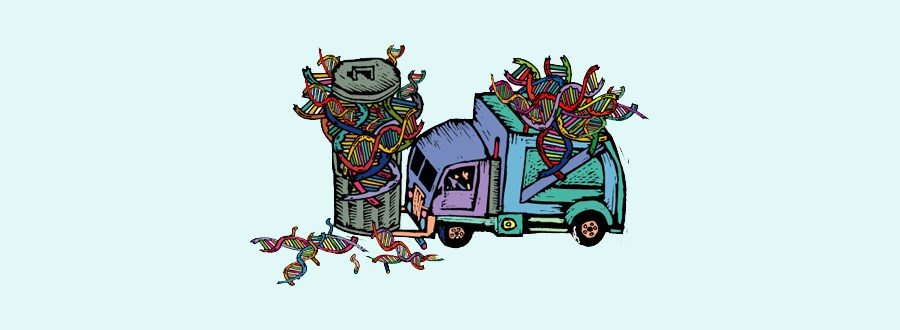Mutations in Junk DNA Could be Linked to Cancer Pathways
Cancer is fundamentally a genetic disease that alters cellular information flow to modify cellular homeostasis and promote growth. The discovery of a universal genetic code for protein-coding genes produced countless breakthroughs in understanding how such mutations drive cancer, establishing the scientific principles on which the development of targeted therapies for malignancies are based.
However, given that coding regions account for less than 2% of the human genome, attention is now shifting to the greater number of somatic mutations in noncoding regions. Thus far, the clearest role for non-coding mutations in cancer has been in the promoter of the telomerase reverse ranscriptase gene (TERT), with such mutations leading to increases in TERT expression levels in many types of tumors.
Although whole-genome sequencing (WGS) of tumor–normal pairs has found recurrent somatic mutations at several other noncoding loci, assessing the function of these mutations, if any, has been challenging.
Now researchers at University of California San Diego School of Medicine and Moores Cancer Center have identified nearly 200 mutations in non-coding DNA that play a functional role in cancer. Each of the mutations could represent a new target in the search for cancer
drugs.“Most cancer-related mutations occur in regions of the genome outside of genes, but there are so incredibly many of them that it’s hard to know which are actually relevant and which are merely noise,” said senior author Trey Ideker, PhD, professor at UC San Diego School of Medicine and Moores Cancer Center. “Here for the first time we found about 200 mutations in non-coding DNA that are functional in cancer — and that’s about 199 more than we knew before.”
To identify noncoding mutations that are associated with functional effects in cancer, Dr. Ideker’s team turned back to TCGA data and carried out a systematic analysis of 930 tumors, integrating whole genome sequences, matched mRNA expression profiles, and reference transcriptional interaction maps. “The secret sauce was to look for changes in gene expression,” notes Dr. Ideker, who is also founder of the UC San Diego Center for Computational Biology and Bioinformatics and co-director of the Cancer Cell Map Initiative.
From their resulting datasets and further analyses, the team identified 193 noncoding loci in which mutations were found to disrupt target gene expression. Most of these identified loci were validated in a second, independent cohort of another 3382 tumors from the ICGC cohort.
Next, the researchers will try to combine these non-coding mutations with coding mutations and determine if there are subtypes — certain types of breast cancer that have a common pattern of both coding and non-coding mutations, for example.
Their goal is to find actions for this information, such as whether or not a patient has a particular mutation pattern that can provide diagnostic or prognostic clues, or inform a particular approach to therapy.






























